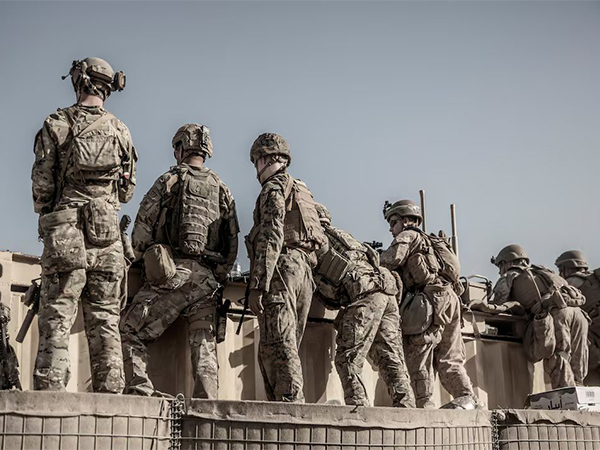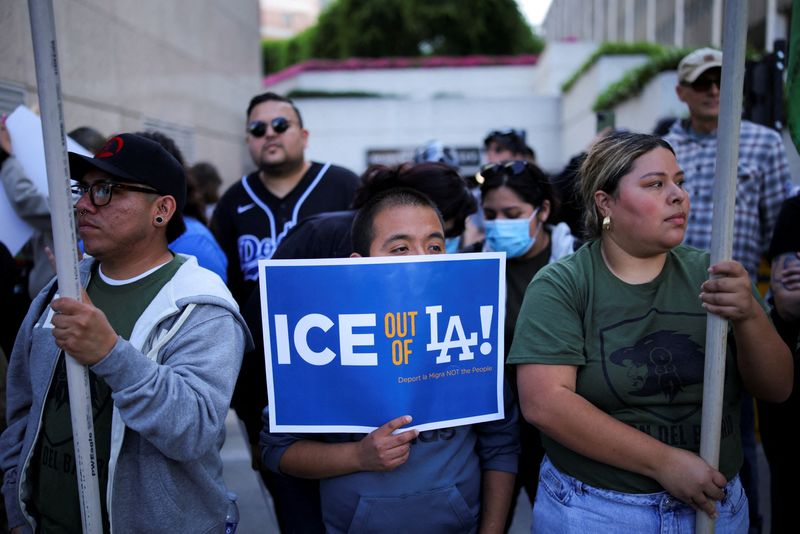Trump Says Region Is Dangerous, Evacuates Military Families
In a significant geopolitical move, the United States has ordered the withdrawal of non-essential diplomats and military families from several key locations in West Asia due to escalating tensions with Iran. The US State Department has issued evacuation orders affecting its embassies in Iraq, Bahrain, and Kuwait, as well as the US consulate in Erbil, Iraqi Kurdistan. The precautionary action follows mounting concerns over regional security threats, particularly with the breakdown of US-Iran nuclear negotiations and renewed fears of military conflict involving Iran and Israel.
The decision underscores Washington’s growing anxiety over the volatile security environment in the Middle East, and marks a proactive step to safeguard US personnel amid reports that Israel may be preparing to strike Iranian nuclear infrastructure. Oil markets have already begun to react, with prices surging over fears that a broader conflict could destabilize global energy supplies.
Diplomatic and Military Families Withdrawn Amid Iran-Israel Tensions
The partial evacuation of US personnel includes the departure of non-emergency staff from diplomatic missions and the voluntary exit of military families across US bases in West Asia. This includes facilities in Bahrain, home to the US Navy’s Fifth Fleet, as well as installations in Kuwait, Iraq, Qatar, and the UAE.
Although US officials have not cited specific threats, multiple intelligence sources suggest that the ongoing deadlock in nuclear talks with Iran and heightened Israeli military readiness have created a dangerous tipping point. President Donald Trump addressed the matter, warning that “the region could be a dangerous place” and reiterated that the US would not allow Iran to acquire a nuclear weapon. He stressed that the evacuation is a precautionary measure, not a signal of imminent war.
Iran’s Defence Minister Aziz Nasirzadeh responded strongly, warning that any military aggression or failure in diplomatic talks would lead to direct retaliation on US bases in the region. Iran claims that all US installations in West Asia are within missile range, highlighting the real and present danger facing American personnel.
The move has drawn comparisons to past US evacuations during periods of regional instability, such as during the Iraq invasion in 2003 or the 2011 Arab Spring uprisings. However, what sets this apart is the nuclear dimension—with Tehran’s enrichment program and Israel’s threat of preemptive action creating an unpredictable and explosive environment.
Strategic Repositioning, Oil Price Spike, and Broader Implications
Beyond the immediate security concerns, the US evacuation signals a broader strategic recalibration of its posture in the Middle East. With US Central Command (CENTCOM) on high alert and closely coordinating with regional allies, military contingency planning is reportedly underway in the event of further escalation.
The situation is also reshaping energy markets. The mere announcement of US withdrawals caused global oil prices to surge, as traders fear disruptions to shipping lanes in the Strait of Hormuz, through which nearly a third of global oil passes. Any military flare-up involving Iran could paralyze oil transit, severely impacting energy-dependent economies across Asia and Europe.
From a diplomatic standpoint, the US faces a delicate balancing act. On one hand, Washington continues to push for Iran to halt uranium enrichment; on the other, Iran insists it is not developing nuclear weapons and demands the lifting of sanctions. This deadlock—compounded by Israel’s hawkish stance and Tehran’s threats of retaliation—has made the region more fragile than it has been in years.
President Trump has kept military options open, though he maintains a preference for a peaceful resolution. Still, the recent evacuation sends a clear signal: Washington is preparing for all possible outcomes, including open conflict. While the move is precautionary, not predictive, it highlights just how swiftly the balance of peace in West Asia can be shaken.





















